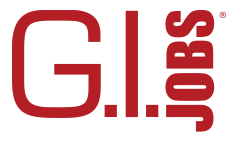There always seems to be “that guy” (or gal) in the office. He’s dropping acronyms so fast, it sounds like another language. And, in a way it is. Corporate speak has accelerated quickly in this age of ever-changing technology. If you’re seeing unfamiliar phrases or words in job postings, here’s a guide to help you translate.

They want people who know what?
According to a recent LinkedIn survey, cloud computing is the number-one skill most sought-after by employers in 2019. In a nutshell, these folks manage a network of remote servers hosted on the internet to store and process data. It’s a big deal for companies that are growing, as it allows them to operate from anywhere in the world, without having to constantly upgrade hardware.
Job titles you may see that are related to cloud computing include:
- Software engineer
- Software architect
- Full stack developer
- Java developer, to name just a few.

No, IoT is not a Misprint
AI ranks second on the list and involves jobs such as machine learning engineer and data analyst. AI involves one of the buzziest of workplace phrases and skills requirements: Internet of Things (IoT). This technology connects the internet to everyday objects.
Examples run the gamut from contact lenses that monitor glucose levels in tears to alert healthcare providers of diabetes patients (I know—wild!) to Caterpillar incorporating IoT, so machine operators know instantly the status of each key function, with repair needs ordered instantly.
The good news is that if you’re interested in these fields, there are several online options for courses and some are free. Facebook has expanded its Learn with Facebook program that offers several courses across a wide variety of tech fields.
Know Your Soft Skills Lingo
We mentioned in previous posts how employers are desperate for soft skills, i.e. how well one communicates, collaborates and cares. Let’s tackle some of the most common:
- Authenticity: Be yourself. If people sense you’re trying to present a false self, they’re unlikely to trust you.
- Transparency: Be honest. Don’t hold back if a project isn’t on track.
- Vulnerability: Be willing to admit if a task is outside your skillset or you need help with getting all your work done if feeling overwhelmed.
Now, these traits basically sound how everyone should behave without being told. However, if leadership doesn’t model these behaviors, people tend to follow suit. To be certain you’re entering a culture you want to be a part of, talk about these areas during your interview.
Organization Speak that Keeps You in the Loop
Organizational management has increasingly become a science that is no longer relegated to HR and senior execs. You will know an employer is serious about the latest in workflow and hierarchal trends when you see this in a job description:
Client-facing: At the very least, this means positions that work with customers, e.g. sales and customer service. More so today, though, employers want every position to be “client-facing” meaning they want everybody to be thinking how they can use their skills and experience to improve the customer experience.
Agile: Employers often ask for people with Agile project management experience. This process is founded on the idea of conducting product tests in quick “sprints” to avoid costly launch fails.
Vertical vs. Horizontal: This gets back to culture, so if an organization is advertising its workplace as horizontal, it’s saying it has a team-based, employee-driven decision-making culture vs. the traditional top-down management structure that limits employee input.
SWOT: This one probably sounds familiar, as it’s used often for military applications. Strengths, Weaknesses, Opportunities and Threats. Companies take each of these into account during the product development phase or strategy planning process.
Every industry has its own unique jargon and each workplace favors some corporate speak over others, but the key to success in communication is to avoid its overuse. “That guy” who speaks fluent buzz is usually annoying. Workplace communication experts advise speaking in concrete English more often than not to clearly define a situation, so everyone knows how to discuss it.
READ NEXT
7 Gym Essentials to Build an At-Home Gym
6 Veteran Influencers to Follow into 2019




